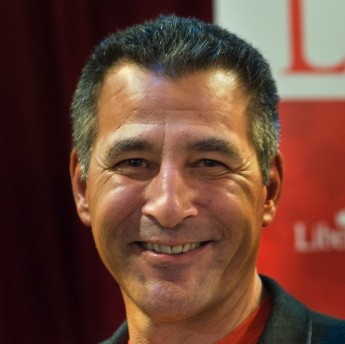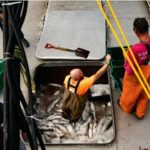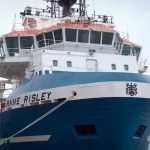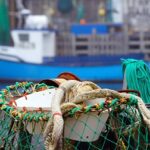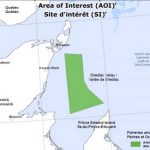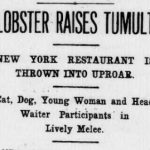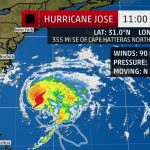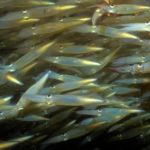Tag Archives: fish farms
‘Cover-up’ claim over ban on fish farm pesticide
 The Scottish Government put pressure on its environmental watchdog to drop a plan to ban a toxic pesticide in 2018 so as not to upset the fish farming industry. Emails released by the Scottish Environment Protection Agency (Sepa) reveal that senior government officials intervened directly to delete any mention of the proposed 2018 ban from a policy briefing for the environment minister, Roseanna Cunningham, following a complaint from the industry. The pesticide, known as emamectin and marketed as Slice, is widely used by fish farmers to kill the lice that plague caged salmon. But new scientific evidence suggests it is also causing widespread damage to wildlife in Scotland’s sea lochs. click here to read the story 09:10
The Scottish Government put pressure on its environmental watchdog to drop a plan to ban a toxic pesticide in 2018 so as not to upset the fish farming industry. Emails released by the Scottish Environment Protection Agency (Sepa) reveal that senior government officials intervened directly to delete any mention of the proposed 2018 ban from a policy briefing for the environment minister, Roseanna Cunningham, following a complaint from the industry. The pesticide, known as emamectin and marketed as Slice, is widely used by fish farmers to kill the lice that plague caged salmon. But new scientific evidence suggests it is also causing widespread damage to wildlife in Scotland’s sea lochs. click here to read the story 09:10
Alaska fisheries thrive — yet industry is on the edge
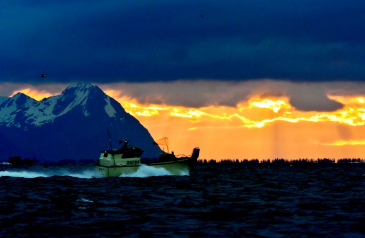 It has been a really good year across most of Alaska’s commercial fisheries. Salmon prices are up, harvests are good, fuel costs are down, and there’s more: The world’s appetite for nutritious, wild-caught Alaska fish, caught in clean waters, is growing. Alaskans’ track record for managing fisheries in a sustainable manner, both near-shore and further at sea, reinforces our reputation for responsible stewardship. Life is good.,,, Seafood employed 56,800 workers in 2015-2016 and this industry annually contributes $5.2 billion to the state’s economic output. But as good as this sounds, the fact is that this traditional industry is actually fragile,,, click here to read the story 21:45
It has been a really good year across most of Alaska’s commercial fisheries. Salmon prices are up, harvests are good, fuel costs are down, and there’s more: The world’s appetite for nutritious, wild-caught Alaska fish, caught in clean waters, is growing. Alaskans’ track record for managing fisheries in a sustainable manner, both near-shore and further at sea, reinforces our reputation for responsible stewardship. Life is good.,,, Seafood employed 56,800 workers in 2015-2016 and this industry annually contributes $5.2 billion to the state’s economic output. But as good as this sounds, the fact is that this traditional industry is actually fragile,,, click here to read the story 21:45
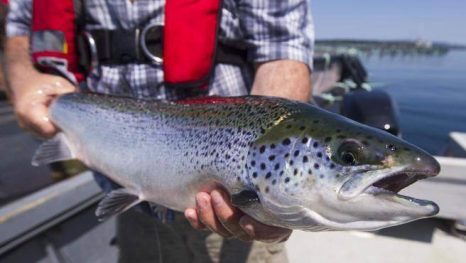
Study links fish farms to spread of antibiotic resistance
New research that finds a possible link between fish farms and the spread of antibiotic resistance doesn’t surprise marine biologist Inka Milewski. “Anytime you have animals grown in very concentrated conditions in these intensive livestock operations, whether it’s pigs or chickens, or in this case, fish, you’re going to have the potential for disease problems,” Milewski said in an interview Sunday from her home in the Miramichi in New Brunswick. “The solution to a lot of these problems is to put antibiotics into the feed. And so it should come as no surprise to anyone that they have found antibiotic resistance associated with fish farms.” The study released last week by Jing Wang of Dalian University of Technology in China concluded that genes for antibiotic resistance are getting into ocean sediments through fish food. click here to read the story 09:49
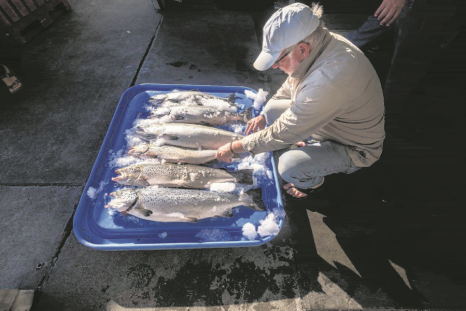
After Atlantic salmon spill, fish farms’ future under attack on both sides of border
Cooke Aquaculture Pacific knew it had problems at its Cypress Island fish farm before the catastrophic failure that spilled tens of thousands of Atlantic salmon into Puget Sound. “The farm site No. 2 was identified as the first priority for upgrades. We knew it was at the end of its life cycle and it needed upgrades right away, and we were in the process of doing that,” company spokesman Chuck Brown said this week. But the company never got the chance. Instead, the farm capsized the weekend of Aug. 19, with 305,000 Atlantic salmon inside. The company collected 142,176 in all from its nets. The rest escaped.,,, The state already has said it won’t allow new or expanded farms until further review, and 20 Western Washington tribes with treaty-protected fisheries say they want Puget Sound farms shut down entirely. click here to read the story 10:29
B.C. First Nations occupy a second salmon farm as company raises safety concerns – click here to read the story
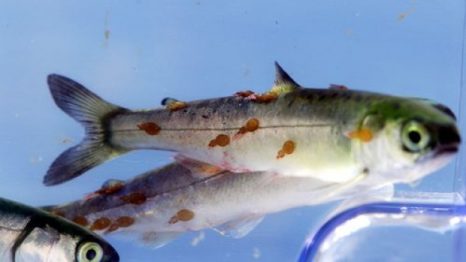
Salmon farms should be worried about more than just one species of sea lice
Migrating young sockeye salmon that are highly infected with parasitic sea lice grow more slowly, according to a new study from Simon Fraser University researchers. That matters, the experts said, because growing quickly can be the difference between life and death for vulnerable juvenile salmon. “Previous studies have shown that to survive to adulthood, young salmon need to get big fast,” said Sean Godwin, a PhD student at SFU and lead author on the study. “Those that grow more slowly — as we found, those heavily infected with sea lice — those fish are more likely to die.” Many people opposed to fish farms have raised concern over declining wild Fraser River sockeye and the potential for parasite transfer from salmon farms. click here to read the story 10:23
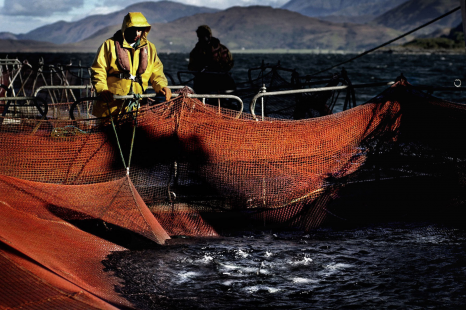
Scottish government accused of colluding with US drug giant over fish farm pesticides scandal
The Scottish Government allowed a US drug company to secretly rubbish a scientific study blaming one of its pesticides for killing wildlife in Scottish sea lochs. The Sunday Herald has uncovered that the £76 billion New Jersey multinational, Merck, hired reviewers to criticise evidence in a scientific study that the company’s fish farm chemical was causing widespread environmental damage. The scientists behind the study and the Scottish Environment Protection Agency (Sepa) privately protested about Merck’s involvement. But they were overruled by government and salmon industry officials who insisted that the company’s role should be kept secret. Merck’s behind-the-scenes influence has been exposed by more than 70 megabytes of internal documents released by the Crown Estate under freedom of information law. They also show that government and industry agreed not to issue a press release on the study. click here to read the story 13:23
Fish farms a necessity: minister – It’s time to get this crap out of the water and into industrial parks
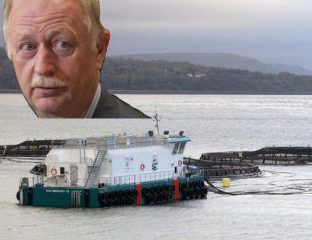 Farmed fish are here to stay as wild fish stocks have come under increasing pressure worldwide, says Nova Scotia Fisheries and Aquaculture Minister Keith Colwell. Colwell responded Thursday to a federal audit tabled before parliament that warned the Department of Fisheries and Oceans had not yet crafted a plan to restore 12 of 15 wild fish stocks deemed to be in critical condition. “The real issue is we don’t have enough wild fish stocks. We’re probably fishing worldwide to the maximum it can be,” Colwell told the Chronicle Herald Thursday. Read the story here
Farmed fish are here to stay as wild fish stocks have come under increasing pressure worldwide, says Nova Scotia Fisheries and Aquaculture Minister Keith Colwell. Colwell responded Thursday to a federal audit tabled before parliament that warned the Department of Fisheries and Oceans had not yet crafted a plan to restore 12 of 15 wild fish stocks deemed to be in critical condition. “The real issue is we don’t have enough wild fish stocks. We’re probably fishing worldwide to the maximum it can be,” Colwell told the Chronicle Herald Thursday. Read the story here
The Minister is using fear monger tactics to push open pen aquaculture as the savior of humanity, but, at what cost? If this is as he say’s, and he cares about environmental issues, there is only one answer, and it is to remove this industry from the ocean and into enclosed facility’s on land in industrial parks that keep wild fish segregated from the chemicals and waste generated by this industry. Large concrete tanks with the ability to treat the waste is the only answer. Cooke Aquaculture seems to have plenty of money to buy into fishery’s in the US, and other country’s while they wreak havoc on area’s that they conduct their business, perhaps they should invest in enclosed land based fish farms. Perhaps the Minister should do the right thing instead of boosting profits and environmental destruction for the open pen aquaculture industry. 10:48
Does the future of the fisheries rest on dry land?

Fancy some Manitoba cod? How about Saskatchewan salmon? The idea of Prairie seafood may seem outlandish, but with soaring demand running headlong into environmental concerns over fish farms, some believe the future of the fisheries industry rests on dry land. more@macleans 11:17






